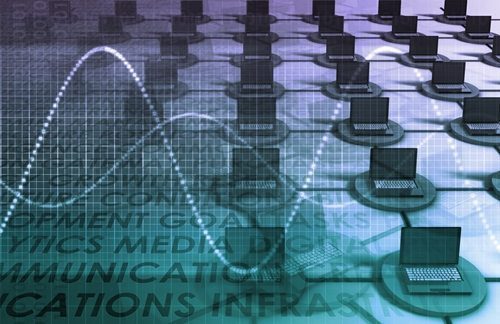Is the pace of digital transformation going to increase in 2018? Which businesses or industries will be at the forefront of this change?
Digital transformation will not only increase in 2018 but at a much more rapid pace than before. This is due to businesses being faced with pressures to improve customer-facing services, boost efficiency, and compete with rivals, who are also making massive investments in their transformation initiatives.
We will see particular investment from telecoms, digital communications providers, and media companies as they strive for better customer engagement. It’s interesting to look at these companies’ stated ambitions: for example, AT&T hopes to have 80% of customer interaction taking place digitally by 2020, while France Telecom expects to achieve 50% in the coming year within Europe. In the case of Telstra, nearly 60% of service transactions are already completed online that number is expected to increase significantly over the next couple of years.
Other companies are launching new products and brands with even more ambitious targets. TUENTI, the Spanish MVNO, intends all customer interaction be digital, while VOXI, the Vodafone brand for young people, has similarly high ambitions. Initiatives like these will force the pace for the rest of the industry.
Which technologies are going to see greater adoption in 2018?
2017 saw numerous high-profile hacks and the rise of new cybercriminal entities — including state-sponsored attackers.
As a result, we will see a great focus on security in 2018. This will take place across all industries, but the greatest investment will most likely be in telecoms OEM businesses. Companies like Cisco are not just investing heavily in cybersecurity, but they are actually predicating their growth on the security challenges that lie ahead.
Aside from security, we will also see advances in the consumer Internet of things (IoT). Although many IoT applications are over-hyped, the most mature consumer application is for the automobile industry. In 2018, we will see manufacturers making further strides in taking data, repackaging it and using it for monetization – for example, in collaboration with the insurance industry. Another example will be in the “driver experience,” using connected technologies to improve the look and feel of vehicles.
We can expect IoT to fall short of the inflated promises that have been made for it. Again, this is not an issue with the technology but its application. We still haven’t seen widespread consumer adoption, and this means that there has been insufficient trialing and iteration which is so essential for any technology to advance. The technology adoption is based mainly on the ability to monetize it, and it is that part of IoT that is slightly fudgy.
In telecoms, the most high-profile investment will surround the adoption and deployment of 5G. More interestingly for the industry, however, is that all the new CAPEX investment will be cloud-native, and any functionality/new features will be digital-first.
2017 marked rapid advancements in AI — what’s next for the technology with respect to Telco?
Gartner has AI close to the peak of its hype cycle, so we should expect it to enter into the “trough of disillusionment” very soon. That’s not to say that there won’t be some genuinely transformational initiatives deploying AI, such as the ones we’re involved within the telecoms sector. AI applications include network performance monitoring, predictive performance, and configurations of data routing, as well as more customer-oriented uses such as chat bots and algorithmic intervention in customer engagement – for example, in providing service suggestions or advertising.
Are most companies positioned to implement and embrace large technology changes (AI/machine learning, agile, automation, blockchain, AR/VR, cloud, etc.)? If not, what must they do to arrive there?
In truth, most companies are not fully ready to implement technology changes. It’s true that we see the creation of smaller teams and task forces to focus on new technologies like AI and machine learning, blockchain, AR/VR, etc., but the majority of them are only flirting with the idea at the moment.
Agile and cloud will continue to be the most advanced areas, having been around for over a decade, and the most transformative effects will be the changes that they will bring in the way that people work, and teams are organized.
To adopt these changes comprehensively, companies need to transform people’s way of thinking and working. Leadership teams will need to think differently and encourage and motivate their workforce to think differently as well.
Some companies provide a model for these new ways of working, such as Spotify. In 2018, it’s likely that telcos will lead the way towards improving workforce functionality through new technologies and methodologies. But businesses need to answer some fundamental questions about the benefits they expect to achieve, such as: “What does successful automation look like?” and “What does blockchain mean for my ability to do my job?”
Which of these technologies might intersect and what could the impact of that be?
The intersection between different technologies isn’t just a happy accident — it is critical if they are to make any real impact on our lives.
On their own, they are merely applications; they need to be combined with AI and data — the “brain” that makes them work, enables them to learn, and to adapt to different applications.
We see the intersection between data and AI bringing great advances to the telecom industry, not least by integrating CRM systems with customer data and automation. Other technologies are not mature enough or have too few use cases, to be realistic candidates for widespread intersection — such as AR/VR.

